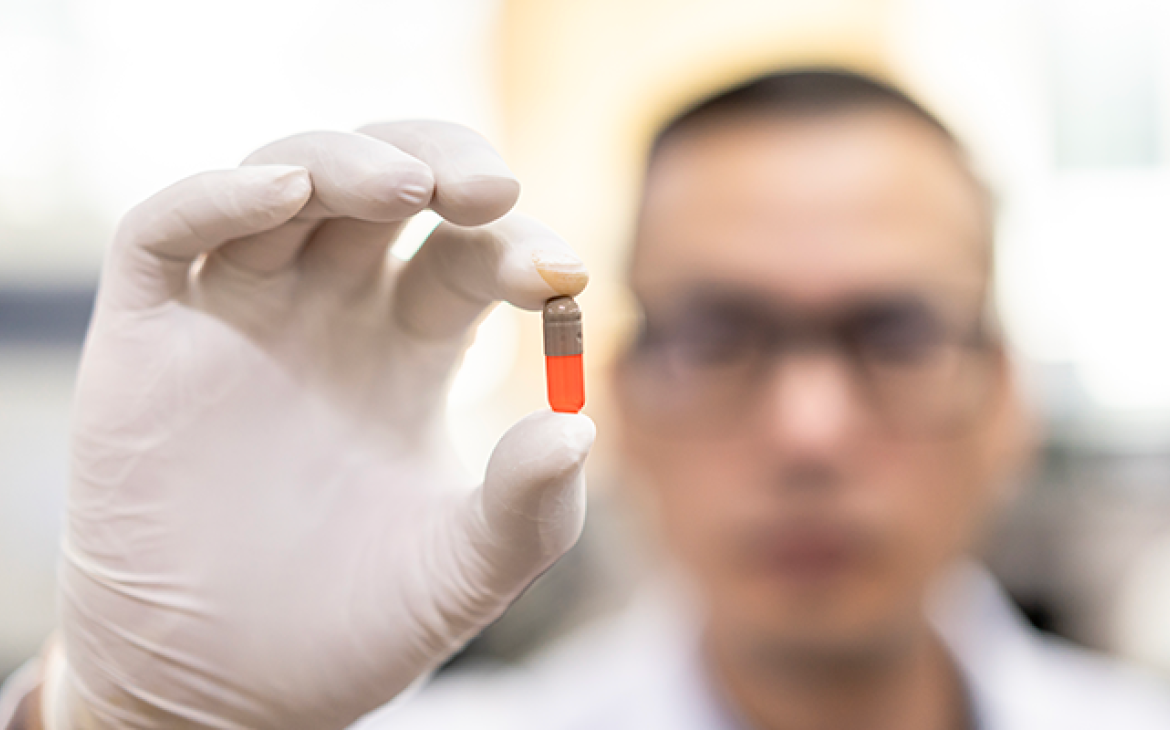
World standards day (WSD) is celebrated in October each year to recognize the thousands of scientists and other experts around the world who develop standards that impact every aspect of our daily lives. This year’s WSD theme is “sustaining the U.S. standards model and American standards leadership” to showcase the public-private partnerships that have supported America’s continued standards development leadership on the global stage. At the U.S. Pharmacopeia (USP), we’ve worked with stakeholders around the world and across the healthcare ecosystem – including governments, regulators, manufacturers, academia, healthcare providers and others – to develop over 7,500 science-based quality standards. USP standards are essential to maintain a strong global medicines supply chain, increase the availability of safe, quality medicines, and build patient and health provider trust.
Standards build trust in medicine
USP standards are a big reason why patients can get a prescription filled at their local neighborhood pharmacy and trust that the medicine they receive will be safe and work as it should. Drug manufacturers rely on USP standards for the clarity they provide on product quality specifications. By adhering to USP standards, no additional validation may be needed by manufacturers, which in turn supports regulatory officials in their work to review new drug applications.
USP quality standards are used not only to demonstrate the quality of finished products and active pharmaceutical ingredients (APIs), but of inactive ingredients (excipients) and other raw materials. USP standards also address packaging, storage and distribution of medicines, the preparation of compounded medicines and prescription labeling.
From raw materials to production and throughout the supply chain, USP standards enable consistency and uniformity in medicines – no matter the company producing the medicines or where they are manufactured – ensuring safety and quality. USP standards thus enable a multi-manufacturer environment while making the approval process for generic medicines more efficient. In fact, a study conducted by researchers from Johns Hopkins University found that drugs with USP standards have 50 percent more manufacturers than those without one.
Global impact on patient health
USP standards are legally recognized in the Federal Food, Drug, and Cosmetic Act for products marketed in the U.S. Due to globalization and the sourcing of pharmaceuticals and their ingredients from around the world, as well as convergence of related oversight practices across many regions, USP standards have a global impact. USP quality standards are legally recognized in more than 50 countries, and USP physical reference standards used for comparison purposes in product development and quality control are distributed to over 150 countries around the world.
Customs and border officials and law enforcement authorities rely on USP standards to affirm the quality of medicines and their ingredients from overseas sources. The role of USP standards in helping to prevent, detect and address potential quality issues also includes serving as a tool for regulators to remove poor-quality and unsafe products from the market, when needed.
Quality issues for pharmaceuticals can arise in many ways, including through a change in a raw materials supplier or manufacturing process, problems with product storage or transportation, or failures in laboratory controls and processes. Such quality issues can lead to recalls and drug shortages if alternate manufacturers are unavailable or unable to increase production to meet demand.
Because USP standards clearly define quality expectations for drug products, they are an important safeguard to prevent drug shortages, along with workforce training to promote proper application of the standards. In a 2019 report on drug shortages, the FDA found that 62 percent of drug shortages stem from quality issues in manufacturing.
Tackling drug impurities
When an unanticipated quality issue emerges, standards can help regulators, manufacturers and other stakeholders better understand the threat and how to control it by identifying a commonly accepted approach. This is what has been happening with nitrosamine impurities, which can stem from a variety of factors during the lifecycle of a drug’s development and manufacturing, and pose cancer risks if people are exposed to them above acceptable levels and over long periods.
Starting in 2018, the presence of nitrosamine impurities was identified in some angiotensin II receptor blockers used to treat high blood pressure and heart failure. Subsequently, nitrosamine impurities were found in additional drug products, leading to a major effort by regulators and industry to reduce or eliminate their presence in the drug supply. USP developed a standard that provides information, tools, and recommendations to help users understand potential sources of nitrosamine impurities, assess risk, and establish strategies and suitable methods to control them in pharmaceutical products. USP also developed related resources, including education and training, and the Nitrosamines Exchange online community, to facilitate knowledge sharing and support manufacturers and regulators in this area.
Addressing supply chain vulnerabilities
Today, USP is applying its knowledge of standards to address longstanding vulnerabilities in the medicines supply chain that were made even more obvious during the COVID-19 pandemic. For example, our scientists are developing standards and related programs to lower barriers to adoption of advanced manufacturing technologies that – alongside traditional batch manufacturing – can help make more medicines in more places, reduce over-reliance on sourcing from a few countries, and help prevent the related potential for supply chain disruptions. In another initiative, USP is gleaning insights from data on standards distribution and usage in order to develop an early-warning capability for potential disruptions in the upstream medicines supply chain.
USP is proud of its 200-year history of setting standards to build trust in medicines, protect patients and improve global health. On this World Standards Day, we celebrate our peers – the many standard-setting organizations around the world – and look forward to working in concert to advance the standards that improve the human condition and create a more just and equitable society.


